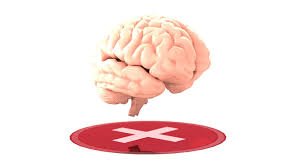How better sleep can keep you out of trouble
Getting a good night’s sleep is just as important as exercising regularly and eating a healthy diet. If you want to optimize your health or lose weight, a good night’s sleep is one of the most important things you can do.
Contents
Better sleep at night
A good night’s sleep directly affects your physical and mental health. Failure to do so can seriously affect your energy, productivity, emotional balance, and even your weight during the day. But many of us toss and turn at night, struggling to get the sleep we need. Getting a good night’s sleep may seem like an impossible goal when you’re wide awake at 3 a.m., but you have a lot more control over the quality of your sleep than you probably think.
Better sleep benefit
Try to sleep and wake up at constant times. Try to fall asleep and get up around the same time every day. This helps to set your body’s internal clock and optimize the quality of your sleep. Choose a bedtime when you usually feel tired, so you don’t toss and turn. If you get enough sleep, you should wake up naturally without an alarm. If you need an alarm clock, you may need to go to bed earlier.
Your body’s circadian rhythm works in a fixed loop, aligning itself with sunrise and sunset.
Being consistent with your sleep and wake hours can improve sleep quality in the long run. Studies have shown that irregular sleep patterns can alter circadian rhythm and melatonin levels, causing the brain to fall asleep.
Relax and clear your mind at night
Many people have a bedtime routine that helps them relax.
Bedtime relaxation techniques have been shown to improve sleep quality and treat insomnia. In one study, a relaxing massage improved sleep quality.
Strategies include listening to relaxing music, reading a book, taking a warm bath, meditating, breathing deeply, and visualizing.
Try different methods and find the one that works best for you.
- Be smart about what you eat and drink.
Your eating habits during the day play a significant role in how well you sleep, especially in the hours before you go to bed.
Limit caffeine and nicotine
You will be surprised to learn that caffeine can cause sleep problems for up to 10 to 12 hours after drinking! Likewise, smoking is another stimulant that can interrupt your sleep, especially if you smoke right before bed.
Avoid large meals in the evening.
Try to prepare dinner earlier in the evening and avoid fatty, rich foods within two hours of bedtime. Spicy or sour foods can cause stomach problems and heartburn.
Also read: 10 Tips For Better Nutrition for Healthy life
Avoid alcohol before going to bed.
While a drink in the evening can help you relax, it disrupts your sleep cycle once you’re gone.
How to sleep faster
Learn ways to go back to sleep. It’s normal to wake up at night, but if you’re having trouble falling asleep, these tips can help:
Stay out of your mind
As difficult as it may be, try not to stress that you cannot fall asleep again, because that stress only stimulates your body to stay awake. Focus on the sensations in your body, or practice breathing exercises to keep out of your mind. Inhale and exhale slowly while saying or thinking the word “Ahhh.” Take another breath and repeat.
Make relaxation your goal, not sleep.
If you find it difficult to fall asleep, try a relaxation technique such as visualization, progressive muscle relaxation, or meditation, which you can do without even getting out of bed. While it doesn’t replace sleep, relaxation can help rejuvenate your body.
Do a quiet, non-stimulating activity.
If you’ve been awake for more than 15 minutes, get out of bed and do a slow, non-stimulating movement, such as reading a book. Keep the lights dim and avoid screens, so you don’t signal to your body that it’s time to wake up.
Postpone your worries and brainstorming
If you wake up at night feeling anxious, write it briefly on a piece of paper and postpone your concerns until the next day, when it will be easier to resolve.
Don’t do vigorous exercises before bedtime
Regular exercise will help you sleep better, as long as you don’t do it too close to bedtime. A burst of energy after exercise can keep you awake. Try to finish each vigorous exercise 3 to 4 hours before going to bed.
Dim the lights
Lower light levels signal your brain to make melatonin, the hormone that causes sleep.
Avoiding bright lights can help you transition to bedtime and contribute to melatonin production.
Tip: Use a 15-watt light bulb if you read the last hour before bed.
No smoking
Exposure to smoke, including secondhand smoke, has been associated with various sleeping problems, including difficulty falling asleep and fragmented sleep.







